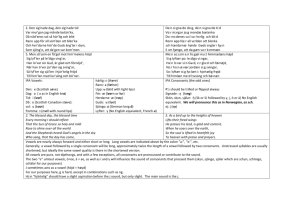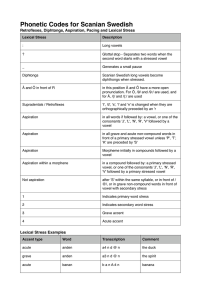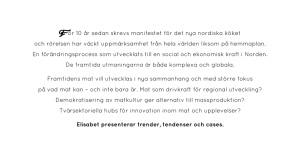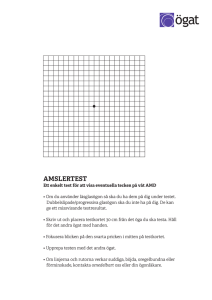UK LINGUISTICS OLYMPIAD
advertisement
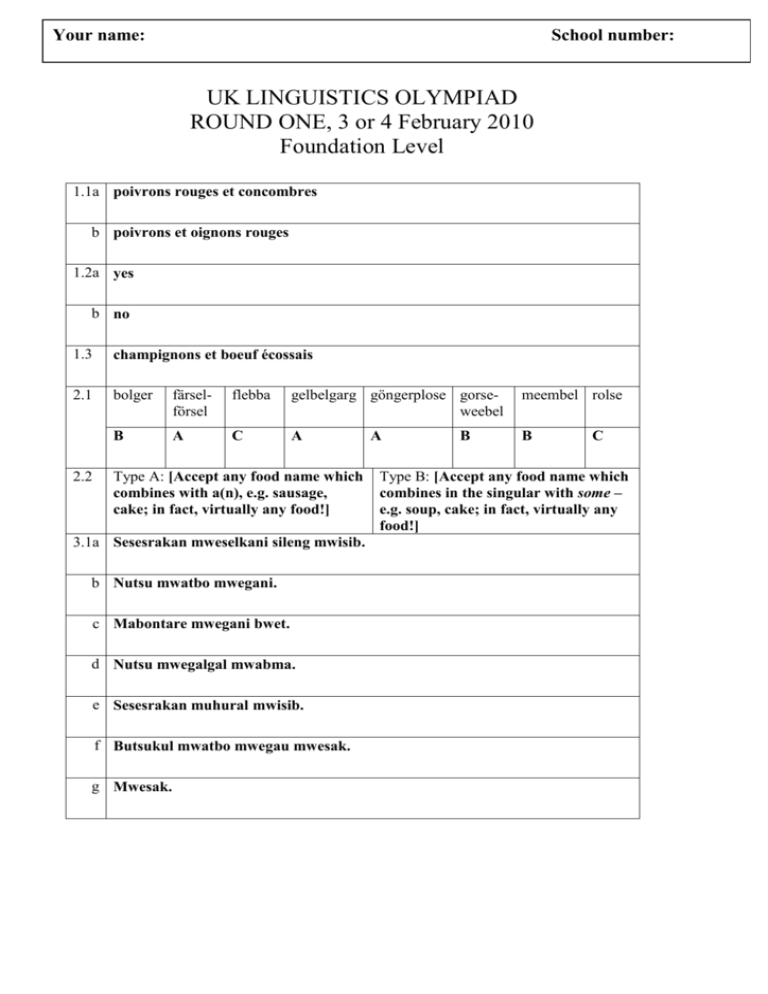
Your name: School number: UK LINGUISTICS OLYMPIAD ROUND ONE, 3 or 4 February 2010 Foundation Level 1.1a poivrons rouges et concombres b poivrons et oignons rouges 1.2a yes b no 1.3 champignons et boeuf écossais 2.1 bolger färselförsel flebba gelbelgarg göngerplose gorseweebel meembel rolse B A C A B 2.2 Type A: [Accept any food name which combines with a(n), e.g. sausage, cake; in fact, virtually any food!] 3.1a Sesesrakan mweselkani sileng mwisib. b Nutsu mwatbo mwegani. c Mabontare mwegani bwet. d Nutsu mwegalgal mwabma. e Sesesrakan muhural mwisib. f Butsukul mwatbo mwegau mwesak. g Mwesak. A B C Type B: [Accept any food name which combines in the singular with some – e.g. soup, cake; in fact, virtually any food!] 3.2a The/a teacher carries (the) taro here. Or: The/a teacher brings (the) taro. b (The) water runs down/downwards/downhill. c He carries (the) taro up/upwards/uphill. 4.1 Gortsaranain 4.2 seven 4.3 Avtogortsaran [ignore upper/lower case differences] 5.1 ikbalsiz, takatsiz 5.2 a. sütçü 5.3 a. dilci b. gözsüz b. dilsiz c. kalıpçı d. kalıpsız 5.4a [Give at least half marks for answers showing that the variation is determined by preceding vowel or consonant.] The first consonant of the ‘do-er’ suffix is c after a vowel or voiced consonant (z,l,n,m) and ç after a voiceless consonant (ş, t, k) [accept without terminology of ‘voiced/voiceless’ if link to consonant type is noted]. b The vowel of either suffix ‘agrees’ with the preceding vowel: i after i or e; u after u or o; ü after ü or ö; ı after ı or a.
